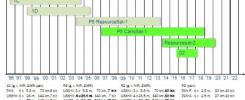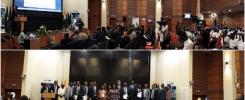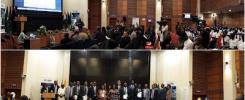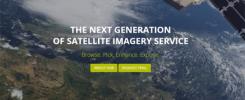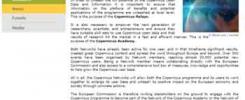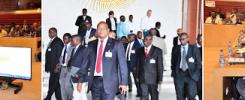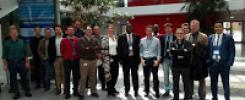Copernicus assists in monitoring risks and planning for response to marine pollution
01 September 2017
A recent example on how data provided by the Copernicus Marine Environment Monitoring Service can contribute to the Regional Marine Pollution Emergency Response Centre for Mediterranean Sea (REMPEC)
In March 2017, following an armed attack on the oil port of Es Sider in Libya, the Regional Marine Pollution Emergency Response Centre for Mediterranean Sea (REMPEC) activated the Mediterranean Operational Network for the Global Ocean Observing System (MONGOOS) services to simulate the worst-case scenario in the case of a potential oil spill incident.
In March 2017, following an armed attack on the oil port of Es Sider in Libya, the Regional Marine Pollution Emergency Response Centre for Mediterranean Sea (REMPEC) activated the Mediterranean Operational Network for the Global Ocean Observing System (MONGOOS) services to simulate the worst-case scenario in the case of a potential oil spill incident.
This simulation, based on data provided by the Copernicus Marine Environment Monitoring Service, in combination with other sources, including local information from REMPEC Focal Points in Libya, providing forecasts on currents and wind, showed that in only 24 hours about 44% of the oil would reach the coast. This information has proven vital for public authorities to prepare for any risk from accidental marine pollution.
CONTEXT AND SPECIFICITIES
The Mediterranean basin’s coast is shared between 21 countries, with a coastline of 46 000 km. It is also home to around 480 million people living across three continents (Africa, Asia and Europe) and one of the world's busiest shipping routes with about one-third of the world's total merchant shipping sailing its seas each year. Although shipping is, statistically, the least environmentally damaging mode of transport, its environmental impact includes greenhouse gas emissions, sound, and oil pollution.
BACKGROUND
In 1976 the United Nations established the Regional Marine Pollution Emergency Response Centre for Mediterranean Sea (REMPEC) to contribute to preventing and reducing pollution from ships and combating spills in case of emergency.
Since 2009, in the framework of the Mediterranean Assistance Unit (MAU), this emergency response centre has been assisted by MONGOOS for events related to both accidental and voluntary marine pollution from ships. MONGOOS uses Copernicus as one of its data sources. It is currently coordinating a multi-platform observation system (in situ and remote sensing), a Mediterranean basin scale ocean forecasting system and several high-resolution forecasting systems in the Mediterranean sub-basins and coastal zones.
In the event of a pollution incident (or potential risk), the Emergency Response Office (ERO) of MONGOOS provides, within one hour, information on the spill such as forecast of the drift of the oil and detection of areas of the coast more likely to be affected, in order to allow neighbouring countries to define a response strategy.
Published by COPERNICUS OBSERVER <observer@copernicus.eu>
Read more...









